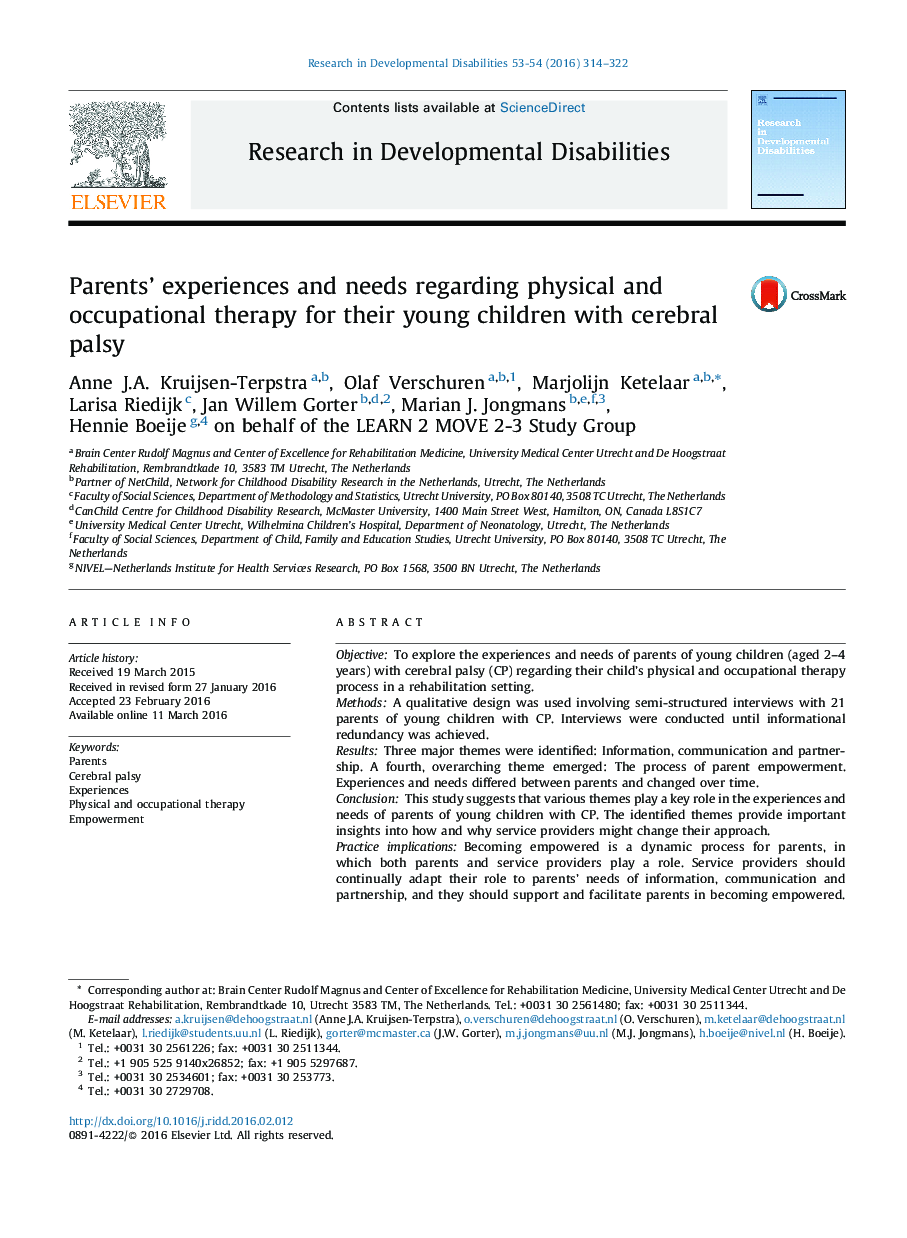| Article ID | Journal | Published Year | Pages | File Type |
|---|---|---|---|---|
| 370991 | Research in Developmental Disabilities | 2016 | 9 Pages |
•Experiences and needs of parents regarding therapy of their young child with CP were investigated.•Main themes were: information, communication, partnership and the process of parent empowerment.•Experiences and needs differed between parents and changed over time.
ObjectiveTo explore the experiences and needs of parents of young children (aged 2–4 years) with cerebral palsy (CP) regarding their child's physical and occupational therapy process in a rehabilitation setting.MethodsA qualitative design was used involving semi-structured interviews with 21 parents of young children with CP. Interviews were conducted until informational redundancy was achieved.ResultsThree major themes were identified: Information, communication and partnership. A fourth, overarching theme emerged: The process of parent empowerment. Experiences and needs differed between parents and changed over time.ConclusionThis study suggests that various themes play a key role in the experiences and needs of parents of young children with CP. The identified themes provide important insights into how and why service providers might change their approach.Practice implicationsBecoming empowered is a dynamic process for parents, in which both parents and service providers play a role. Service providers should continually adapt their role to parents’ needs of information, communication and partnership, and they should support and facilitate parents in becoming empowered. For that, service providers should be educated on the process of parent empowerment, on ways to facilitate this process and on the importance of involving and interacting with parents.This allows families of young children with CP to be provided with services that best suit their needs.
